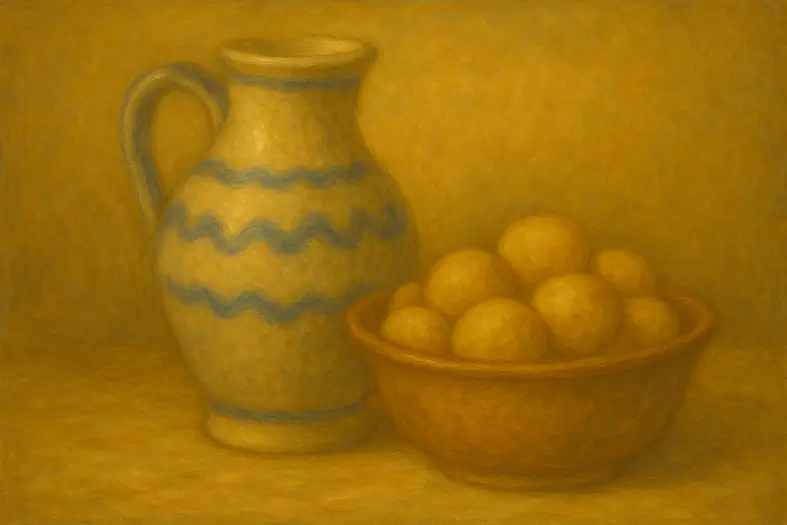


Forbidden to eat specific fats (cheilev) of kosher animals that are reserved for the altar.
This mitzvah prohibits eating the cheilev—certain forbidden fats found in kosher domesticated animals, such as around the kidneys, liver, and entrails. These fats are designated for the altar in sacrificial service and are considered holy. Eating them is strictly forbidden and incurs karet (spiritual excision). Permitted fats (shuman), by contrast, may be eaten. This distinction underscores that holiness is found not only in what we eat but also in what is withheld as sacred to Hashem.
Commentary & Classical Explanation:


Represents the concept of spiritual intentionality, purity, and sanctity—set apart for a higher purpose.
Represents Emunah—the deep, inner trust in Hashem’s presence, oneness, and constant involvement in our lives. This badge symbolizes a heartfelt connection to G-d, rooted in belief even when we cannot see. It is the emotional and spiritual core of many mitzvot.
Mitzvot that strengthen communal life — showing up, participating, supporting, and belonging. Community is where holiness is shared, prayers are multiplied, and responsibility becomes collective.
Mitzvot that define and deepen the relationship between a person and their Creator. These include commandments involving belief, prayer, Shabbat, festivals, sacrifices, and personal holiness — expressions of devotion rooted in divine connection.

Dive into mitzvos, prayer, and Torah study—each section curated to help you learn, reflect, and live with intention. New insights are added regularly, creating an evolving space for spiritual growth.

Explore the 613 mitzvos and uncover the meaning behind each one. Discover practical ways to integrate them into your daily life with insights, sources, and guided reflection.

Learn the structure, depth, and spiritual intent behind Jewish prayer. Dive into morning blessings, Shema, Amidah, and more—with tools to enrich your daily connection.

Each week’s parsha offers timeless wisdom and modern relevance. Explore summaries, key themes, and mitzvah connections to deepen your understanding of the Torah cycle.